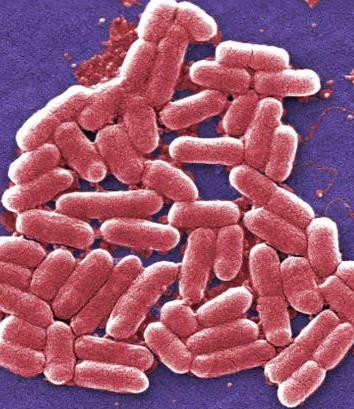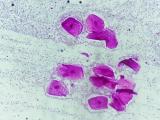Two Chinese research teams reported more worrisome findings regarding the MCR-1 resistance gene alongside other resistance factors, hinting at the presence of bacteria strains that may resist all drugs, and Canadian researchers said they dected the MCR-1 gene in a British Columbia patient.
The two reports from China were published yesterday by separate teams in The Lancet Infectious Diseases.
The MCR-1 gene, first described by Chinese investigators in November, disables the last-line antibiotic colistin, an older drug that isn't often used in humans but is commonly used for raising food animals.
In one study, researchers examined a collection of 17 colistin-resistant Enterobacteriaceae samples collected from 2013 through 2015 at a hospital in Suzhou, China. They found the MCR-1 gene in four isolates, two Escherichia coli and two Klebsiella pneumonia.
Tests revealed that the two K pneumonia samples were resistant to all nearly all drugs tested, and both carried the NDM-5 resistance gene, a variant of NDM-1 that has increased carbapenemase activity.
The scientists concluded that MCR-1 has already established itself in highly resistant Enterobacteriaeae species, including into carbapenem-resistant strains that carry the NDM-5 gene.
In the second study from China, the other team did further analysis of E coli isolates from retail meat samples that carried the MCR-1 gene to see if they were resistant to other antibiotics. They found that one E coli strain from a chicken wing purchased in a large supermarket in 2014, was resistant to all antibiotics sampled except for doxycycline and tigecycline.
The strain co-produced NDM-9 and another resistance gene, FosA3, which they wrote was surprising and worrisome, given that carbapenem and fosfomycin aren't approved for use in food animals in China and that the strain's presence in retail meat could colonize the human intestinal tract where it could transfer resistance to other pathogens.
Findings in British Columbia
Elsewhere, researchers from British Columbia confirmed MCR-1 resistance in a patient who returned to the province from China, according to a Jan 25 statement from the BC Centre for Disease Control (CDC).
The report didn't say when the isolate was collected, but it noted that the sample is the second human case of MCR-1 resistance detected in Canada. The patient was successfully treated and was discharged from the hospital.
According to BC CDC, the risk to British Columbia is low, the MCR-1 gene is rare in Canada, and the source is likely animals and meat sold in China or healthcare exposures outside of Canada.
See also:
Jan 31 Lancet Infect Dis report on MCR-1 in carbapenem-resistant Enterobacteriaceae
Jan 31 Lancet Infect Dis report on carbapenem- and colistin-resistant E coli
Jan 25 BC CDC statement

























